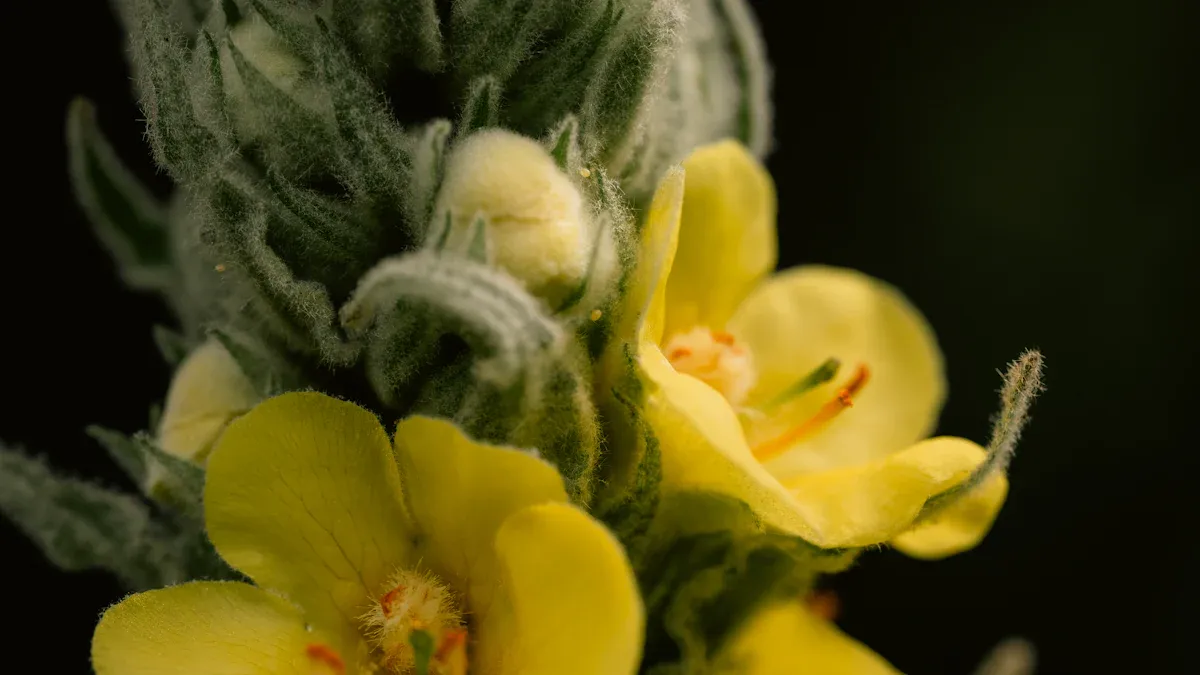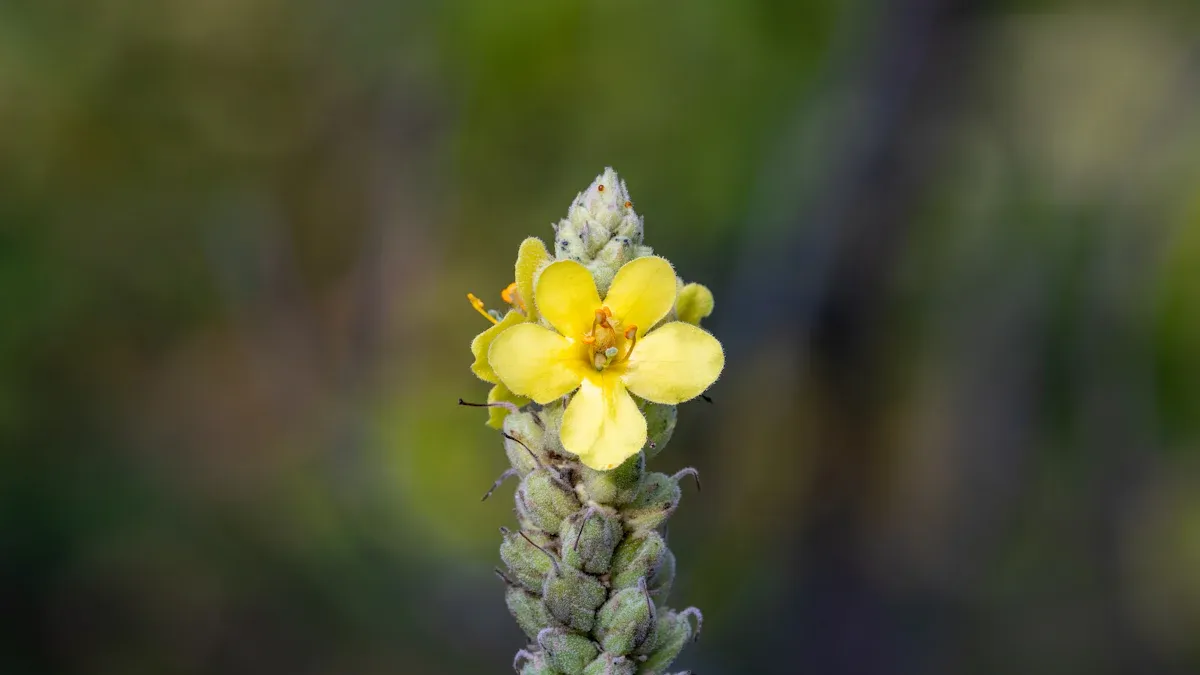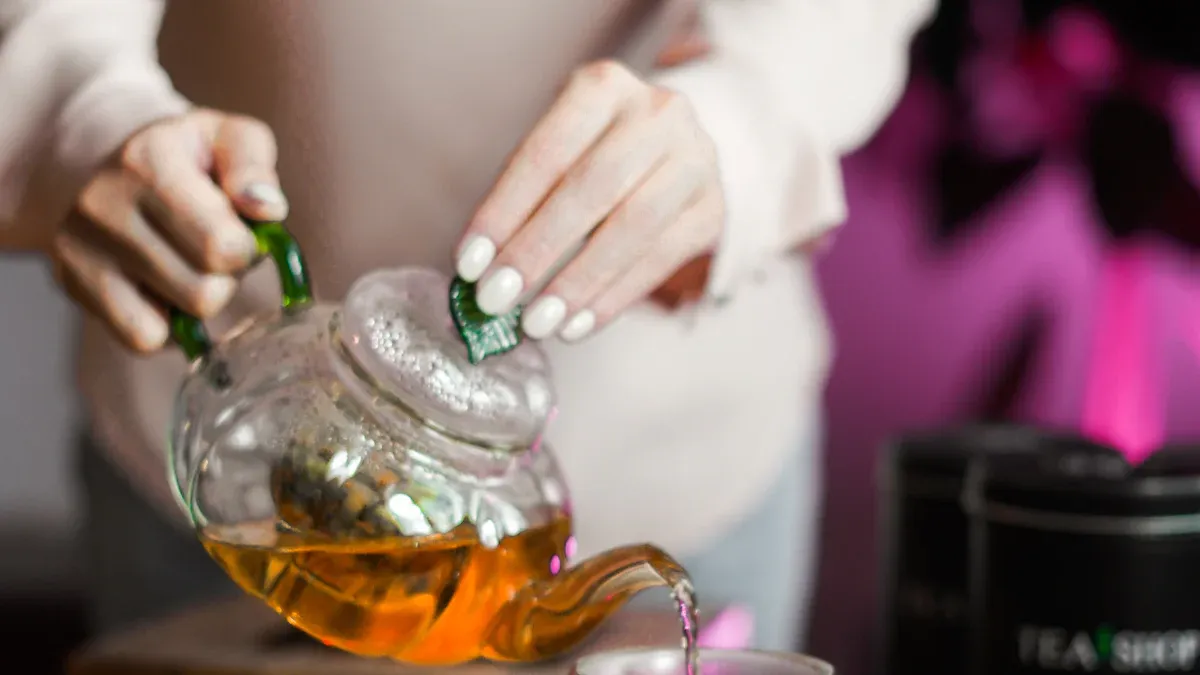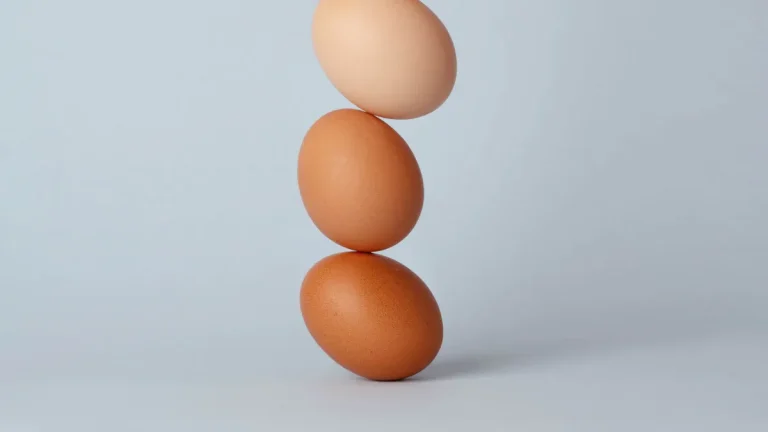
Ready to discover the Powerful Benefits of mullein leaf tea? You can expect support for your lungs, natural antibacterial and antiviral effects, less inflammation, and a boost of antioxidants.
The global mullein leaf market is set to reach $4.78 billion by 2032.
Search interest for “mullein tea” soared in late 2024.
Study Year | Findings | Health Benefit |
|---|---|---|
2009 | Mullein leaf extracts fought urinary tract bacteria. | Antimicrobial properties |
2013 | Verbascoside from mullein lowered inflammation and had antioxidant power. | Anti-inflammatory effects |
Key Takeaways
Mullein leaf tea acts as a natural expectorant, helping to clear mucus and soothe respiratory discomfort.
The tea contains powerful antibacterial compounds that can help fight infections and support immune function.
Regular consumption of mullein tea may reduce inflammation, promote overall wellness, and provide antioxidant benefits.
Powerful Benefits for Respiratory Health

Expectorant Action
When you sip mullein leaf tea, you tap into one of its most Powerful Benefits—helping your body clear out mucus. Mullein works as a natural expectorant. This means it helps loosen and thin mucus, making it easier for you to cough it up and breathe better. You might notice your chest feels lighter after a warm cup.
Mullein has a long history as an expectorant, used in traditional remedies.
A 2005 study in Phytotherapy Research found that mullein extract showed expectorant and bronchodilatory effects in animal models.
Saponins in mullein may play a role in these actions, though more human studies are needed.
You also get extra support from the plant’s mucilage. This sticky substance coats your throat and airways, calming irritation and reducing inflammation. Here’s how mullein helps your lungs:
Loosens mucus so you can expel it more easily
Calms inflammation in your airways
Protects your cells with antioxidants
Fights germs with natural antiseptic properties
Soothes Throat and Airways
If you struggle with a scratchy throat or irritated airways, mullein leaf tea can bring soothing relief. The mucilage in mullein acts like a gentle blanket, coating your throat and easing discomfort. You may find it especially helpful during cold or allergy season.
Study Year | Findings | Type of Study |
|---|---|---|
2012 | Mullein has antispasmodic properties that may help relax respiratory muscles | Test-tube study |
2007 | Mullein extract was effective against the influenza virus | Test-tube study |
2012 | Mullein extract may target pseudorabies virus | Test-tube study |
Compared to other herbal teas, mullein stands out for its Powerful Benefits in respiratory health. While some teas may help you relax, mullein offers a unique mix of expectorant, anti-inflammatory, and immune-supporting effects.
Antibacterial Effects
Fights Bacterial Infections
You might be surprised at how mullein leaf tea helps your body fight off bacteria. This herbal tea packs a punch with several natural compounds that target harmful germs. Take a look at the main antibacterial compounds found in mullein leaf tea:
Antibacterial Compounds |
|---|
Saponins |
Flavonoids |
Glycosides |
Tannins |
Terpenoids |
These compounds work together to protect you from bacteria like Staphylococcus aureus, Escherichia coli, and Klebsiella pneumoniae. Lab studies show that mullein leaf extracts can fight both gram-positive and gram-negative bacteria. In fact, the tea’s action against Klebsiella pneumoniae is similar to the antibiotic Erythromycin. That’s pretty impressive for a simple herbal brew!
You may wonder how mullein compares to regular antibiotics. Researchers found that mullein leaf tea can stop the growth of tough bacteria, including some that resist antibiotics. A 2009 study showed strong antibacterial activity against Enterococcus faecalis and Proteus mirabilis, with results close to standard medicines. The minimum amount needed to stop these bacteria was very low, showing mullein’s Powerful Benefits as a natural option.
Supports Immune Function
Mullein leaf tea does more than fight germs. It also helps your immune system stay strong. The tea contains iridoid glycosides, which help regulate your immune response. This means your body can adapt and defend itself better when you face infections. You get extra support for your body’s natural defenses, making mullein leaf tea a smart choice during cold and flu season.
Tip: Drinking mullein leaf tea regularly may help your body respond faster to threats, keeping you healthier all year long.
Relief from Viral Infections
Eases Cold and Flu Symptoms
When you feel a cold or the flu coming on, you want fast relief. Mullein leaf tea can help you feel better when viral infections strike. This herbal tea has a long history as a home remedy for coughs, stuffy noses, and sore throats. You might notice your breathing gets easier and your throat feels less scratchy after a warm cup.
Researchers have found that mullein leaf tea offers several Powerful Benefits for fighting viruses. Here’s what studies show:
Test-tube research reveals that mullein can kill viruses on contact.
Some studies suggest mullein may boost the effects of certain flu medicines.
A 2023 study found that Verbascum species (the plant family for mullein) fight off influenza A and herpes viruses.
Combining mullein with amantadine, a flu medicine, increased antiviral activity in a 2000 study.
You also get extra support from the tea’s antioxidants and natural compounds. These help your body fight off germs and may stop flu viruses from spreading. Homeopathic doctors often recommend mullein tea to reduce mucus and calm coughs. You might find that your cough becomes less harsh and your chest feels clearer.
Mullein tea is known for easing cold and flu symptoms, especially in the lungs and throat.
The tea’s antiviral and antimicrobial properties may help your body recover faster.
People have used mullein for generations to soothe coughs and reduce inflammation.
While most evidence comes from lab studies, many people still turn to mullein tea for comfort during cold and flu season. You can enjoy a soothing cup and know you’re supporting your body’s natural defenses.
Anti-Inflammatory Support
Reduces Irritation
Do you ever feel like your throat or chest gets irritated after a long day or during allergy season? Mullein leaf tea can help calm that discomfort. This herbal tea is packed with natural compounds that work together to soothe your body and reduce swelling. Take a look at what’s inside each cup:
Compound | Properties |
|---|---|
Flavonoids | Antioxidants with anti-inflammatory and immune-boosting properties. |
Saponins | Help expel mucus and have antimicrobial properties. |
Tannins | Soothe inflamed skin tissue and reduce swelling. |
Coumarins | Antioxidant and anti-inflammatory effects, promote muscle relaxation. |
Specific Flavonoids | Luteolin, quercetin, apigenin, and kaempferol exhibit anti-inflammatory effects. |
You get a blend of flavonoids, saponins, tannins, and coumarins. These ingredients help your body fight inflammation and relax your muscles. If you drink mullein leaf tea, you may notice less irritation in your throat and chest. Your airways might feel clearer, and you could breathe easier.
Mullein stands out among natural remedies for its anti-inflammatory support. Here are some other herbs people use for similar effects:
Mullein
Organic Wild Lettuce
Organic Turmeric
Organic Ginger Root
Organic Black Pepper
Organic Lemongrass
Organic Devil’s Claw
Mullein tea is especially good for respiratory inflammation. The flavonoids and saponins in mullein make it a strong choice if you want to calm your airways. You get Powerful Benefits that help you feel better and stay active. Next time your throat feels scratchy, try a warm cup and see the difference.
Tip: For best results, drink mullein leaf tea slowly and let the soothing compounds do their work.
Antioxidant Properties
Promotes Overall Wellness
You might wonder how mullein leaf tea helps your body feel its best. The answer lies in its rich mix of antioxidants. These special compounds protect your cells from damage and help you stay healthy every day. Take a look at what you get in each cup:
Antioxidant Compound | Description |
|---|---|
Verbascose | A polysaccharide with antioxidant properties. |
Verbasterol | A sterol that may contribute to antioxidant effects. |
Coumarins | Compounds known for their antioxidant activity. |
Ascorbic Acid | Also known as Vitamin C, a well-known antioxidant. |
Saponins | Compounds that can have antioxidant effects. |
Flavonoids | A group of antioxidants with various health benefits. |
Tannins | Polyphenolic compounds with antioxidant properties. |
Terpenoids | Organic compounds that may exhibit antioxidant effects. |
Glycosides | Compounds that can have beneficial antioxidant effects. |
Mucilage | Provides anti-inflammatory benefits, indirectly supporting antioxidant activity. |
You get more than just a warm drink. Mullein leaf tea supports your whole body in many ways:
People have used mullein for years to help with breathing and lung health.
Scientists say mullein’s anti-inflammatory and antimicrobial powers help your immune system.
The flavonoids and phenolic compounds in mullein may calm tissue irritation and protect your cells.
When you compare mullein tea to other herbal teas, you find it holds its own. Mullein tea has lots of polyphenols, which give it strong antioxidant properties. The flavonoids in mullein help your cells fight off stress and damage. Green tea still leads the pack for antioxidants, but mullein tea offers a gentle, natural boost.
Tip: Drink mullein leaf tea regularly to enjoy its Powerful Benefits for your body and mind. You may notice more energy and better wellness over time.
Preparation

Ready to brew a soothing cup of mullein leaf tea? You don’t need fancy equipment or special skills. You just need dried mullein leaves, hot water, and a little patience. Here’s how you can make a perfect cup every time:
Measure out 1 to 2 teaspoons (or about 5 to 10 grams) of dried mullein leaves. Place them in your favorite teapot or mug.
Boil fresh water in a small pot. Pour the hot water over the mullein leaves.
Let the tea steep for 10 to 15 minutes. This gives the essential oils and active compounds time to release into the water.
Strain the tea through a coffee filter, fine mesh, or sieve. This step helps remove tiny hairs from the leaves, which can irritate your throat.
Pour the tea into your cup and enjoy!
Tip: The ideal steeping time is between 10 and 15 minutes. This brings out the best flavor and health benefits.
Want to make your mullein tea taste even better? Try these simple tricks:
Start with a small amount of leaves if you’re new to the flavor.
Adjust the steeping time to find your favorite taste.
Add a natural sweetener like honey if you notice a slight bitterness.
Mix mullein with other herbs, such as mint or chamomile, for a unique blend.
Tip | Description |
|---|---|
Combine with other herbs | Boosts flavor and creates tasty blends. |
Use natural sweeteners | Balances out any bitterness in the tea. |
Experiment with different combinations until you find what you love. Your perfect cup of mullein tea is just a few steps away!
Safety
Before you brew your next cup of mullein leaf tea, you should know about its safety. Most people enjoy mullein tea without problems, but some side effects can pop up. You might feel a headache, dizziness, or even a bit of nausea after drinking it. These symptoms usually go away quickly. Sometimes, mullein tea acts as a diuretic, which means you could lose more water. If you don’t drink enough fluids, you might get dehydrated. Mullein can also interact with certain medicines, especially blood thinners.
If you notice itching or any allergic reaction, stop drinking mullein tea right away.
Some people should avoid mullein leaf tea. Here’s a quick list for you:
Pregnant individuals should skip mullein tea because it might stimulate contractions.
Nursing mothers are advised against it since it may lower milk production.
People with kidney disease should steer clear due to possible risks.
Anyone allergic to mullein should not drink this tea.
You want to stay safe, so follow these guidelines:
Aspect | Details |
|---|---|
Preparation | Use 2 tablespoons of dried mullein leaves in 1 liter of water. Boil, infuse for 10 minutes, strain, and cool. |
Dosage | Drink up to 3 cups per day. |
Side Effects | High doses may cause allergic reactions, like itching. |
Contraindications | Not recommended for pregnant or breastfeeding women, or those allergic to mullein. |
If you have any health conditions or take medication, talk to your doctor before trying mullein tea. You want to enjoy the benefits, but you also want to stay safe.
You get so many Powerful Benefits from mullein leaf tea.
It helps your lungs and soothes coughs.
It calms inflammation and eases pain.
It supports digestion and boosts your immune system.
It protects your skin and cells.
Try a cup for natural wellness, but always check with your doctor first.
FAQ
Can you drink mullein leaf tea every day?
You can enjoy mullein tea daily. Most people find it safe in moderation. Stick to 1–3 cups per day for best results.
What does mullein leaf tea taste like?
Mullein tea tastes mild and earthy. Some people notice a slightly sweet or grassy flavor. You can add honey or lemon for extra taste.
Can you mix mullein tea with other herbs?
Yes! Try blending mullein with mint, chamomile, or ginger. Mixing herbs can boost flavor and add more health benefits to your cup.


